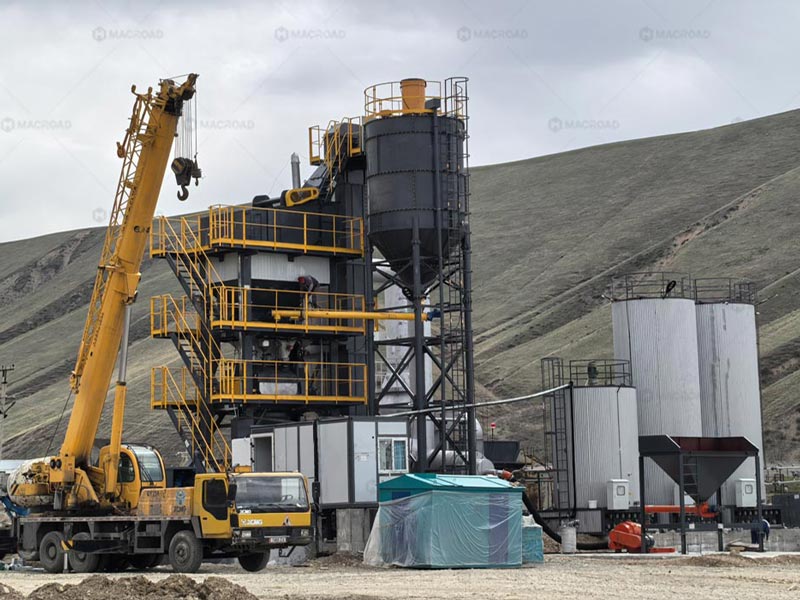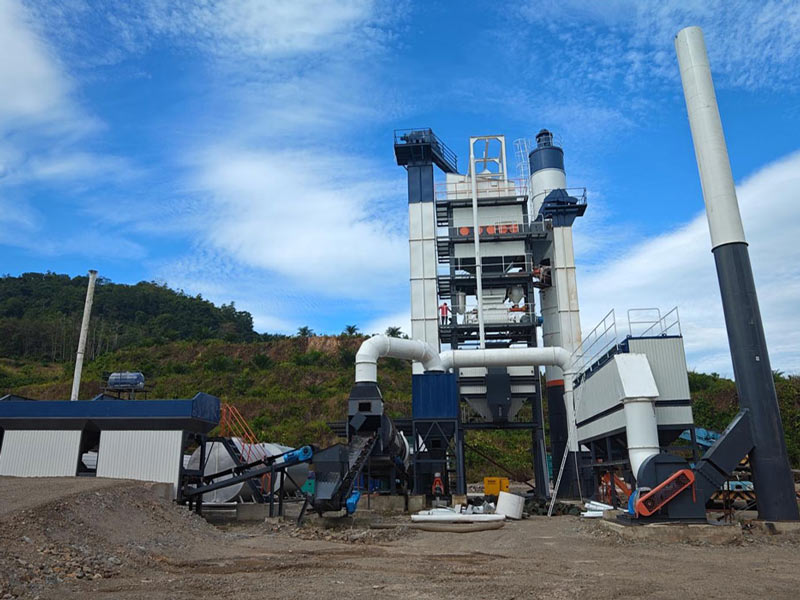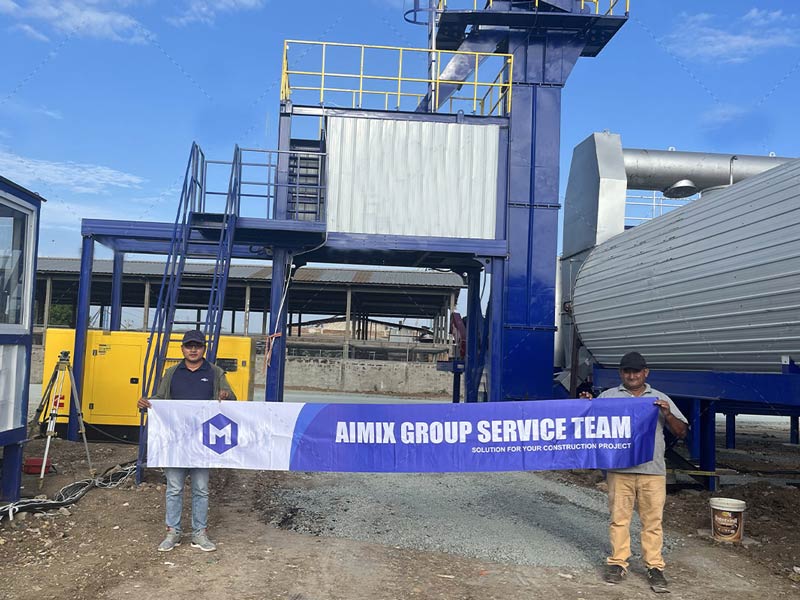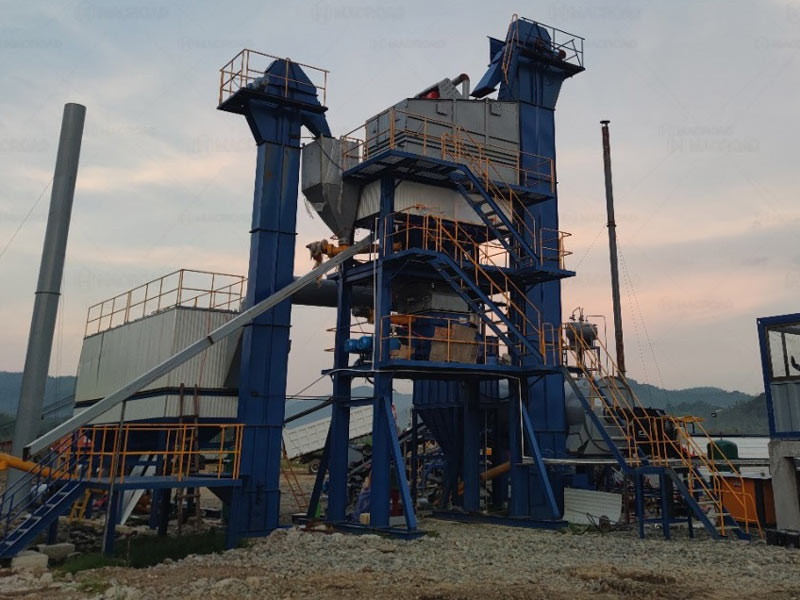17
0
0
Development Directions of the Asphalt Mixing Plant Industry Under Carbon Neutrality Goals
As the world increasingly prioritizes carbon neutrality, the asphalt mixing plant industry faces significant transformations. These changes are driven by the need to reduce greenhouse gas emissions and enhance sustainability throughout the production process. This article explores the key development directions for asphalt mixing plants as they adapt to these evolving environmental standards.

Embracing Sustainable Materials
One of the primary directions for the asphalt mixing plant industry is the shift towards sustainable materials. As regulations tighten and public interest in eco-friendly practices grows, manufacturers are increasingly exploring alternatives to traditional asphalt components. This includes the use of recycled materials, such as reclaimed asphalt pavement (RAP) and warm-mix asphalt technologies, which can significantly reduce the carbon footprint of asphalt production.
By incorporating recycled materials, asphalt plants can not only contribute to waste reduction but also lower production costs. For instance, using RAP can diminish the need for new raw materials, leading to a more sustainable approach. Additionally, warm-mix asphalt allows for lower mixing temperatures, further decreasing energy consumption and emissions during production. As these practices become more mainstream, asphalt plants will need to invest in technology and training to effectively integrate sustainable materials into their operations.

Advancing Energy Efficiency
Another critical development direction is the enhancement of energy efficiency within asphalt mixing plants. As the push for carbon neutrality intensifies, reducing energy consumption has become paramount. Modern asphalt plants are increasingly adopting energy-efficient technologies, such as advanced heating systems and automation, to optimize their operations.
For example, electric drive systems can replace traditional hydraulic systems, providing more precise control and reducing energy waste. Additionally, implementing smart technology for real-time monitoring and adjustment of production parameters can help minimize energy use. By prioritizing energy efficiency, asphalt mixing plants not only comply with environmental standards but also achieve significant cost savings in the long run.

Implementing Carbon Capture and Storage Technologies
The integration of carbon capture and storage (CCS) technologies represents a forward-thinking approach for asphalt mixing plants striving to meet carbon neutrality goals. CCS involves capturing carbon dioxide emissions produced during the asphalt production process and storing them underground or repurposing them for other uses. This technology can significantly lower the overall emissions associated with asphalt production, aligning with global sustainability targets.
As the industry evolves, investing in CCS technologies may become necessary to meet regulatory requirements and public expectations. While initial asphalt plant cost can be high, the long-term benefits of reduced emissions and enhanced corporate responsibility can outweigh these investments. Asphalt plants that adopt CCS will likely gain a competitive edge, appealing to environmentally conscious clients and stakeholders.
Conclusion
In conclusion, the asphalt mixing plant industry is at a pivotal juncture as it adapts to carbon neutrality goals. By embracing sustainable materials, advancing energy efficiency, and implementing carbon capture technologies, the industry can significantly reduce its environmental impact. These development directions not only align with global sustainability efforts but also offer economic advantages to asphalt producers.
As the focus on sustainability continues to grow, asphalt mixing plants that proactively integrate these strategies will be better positioned for long-term success. By prioritizing environmentally friendly practices, the industry can contribute to a greener future while maintaining operational efficiency and profitability.

Embracing Sustainable Materials
One of the primary directions for the asphalt mixing plant industry is the shift towards sustainable materials. As regulations tighten and public interest in eco-friendly practices grows, manufacturers are increasingly exploring alternatives to traditional asphalt components. This includes the use of recycled materials, such as reclaimed asphalt pavement (RAP) and warm-mix asphalt technologies, which can significantly reduce the carbon footprint of asphalt production.
By incorporating recycled materials, asphalt plants can not only contribute to waste reduction but also lower production costs. For instance, using RAP can diminish the need for new raw materials, leading to a more sustainable approach. Additionally, warm-mix asphalt allows for lower mixing temperatures, further decreasing energy consumption and emissions during production. As these practices become more mainstream, asphalt plants will need to invest in technology and training to effectively integrate sustainable materials into their operations.

Advancing Energy Efficiency
Another critical development direction is the enhancement of energy efficiency within asphalt mixing plants. As the push for carbon neutrality intensifies, reducing energy consumption has become paramount. Modern asphalt plants are increasingly adopting energy-efficient technologies, such as advanced heating systems and automation, to optimize their operations.
For example, electric drive systems can replace traditional hydraulic systems, providing more precise control and reducing energy waste. Additionally, implementing smart technology for real-time monitoring and adjustment of production parameters can help minimize energy use. By prioritizing energy efficiency, asphalt mixing plants not only comply with environmental standards but also achieve significant cost savings in the long run.

Implementing Carbon Capture and Storage Technologies
The integration of carbon capture and storage (CCS) technologies represents a forward-thinking approach for asphalt mixing plants striving to meet carbon neutrality goals. CCS involves capturing carbon dioxide emissions produced during the asphalt production process and storing them underground or repurposing them for other uses. This technology can significantly lower the overall emissions associated with asphalt production, aligning with global sustainability targets.
As the industry evolves, investing in CCS technologies may become necessary to meet regulatory requirements and public expectations. While initial asphalt plant cost can be high, the long-term benefits of reduced emissions and enhanced corporate responsibility can outweigh these investments. Asphalt plants that adopt CCS will likely gain a competitive edge, appealing to environmentally conscious clients and stakeholders.
Conclusion
In conclusion, the asphalt mixing plant industry is at a pivotal juncture as it adapts to carbon neutrality goals. By embracing sustainable materials, advancing energy efficiency, and implementing carbon capture technologies, the industry can significantly reduce its environmental impact. These development directions not only align with global sustainability efforts but also offer economic advantages to asphalt producers.
As the focus on sustainability continues to grow, asphalt mixing plants that proactively integrate these strategies will be better positioned for long-term success. By prioritizing environmentally friendly practices, the industry can contribute to a greener future while maintaining operational efficiency and profitability.
Signatur
